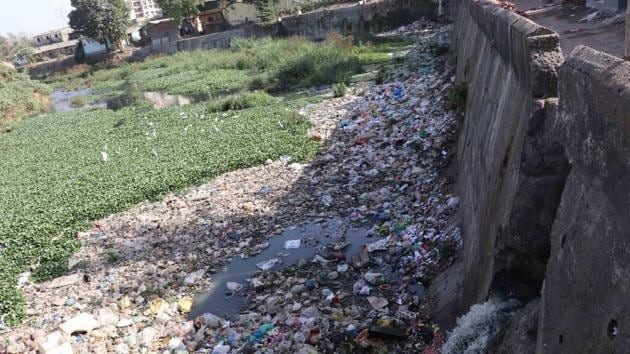It’s time to stop releasing sewage water into rivers
Thane district public health laboratory has found the water of the Ulhas river to be unpotable, odorous and contaminated with industrial pigments and chemicals like chlorides
Last week the Supreme Court (SC) pulled up the Kalyan-Dombivli Municipal Corporation (KDMC) for failing to meet its commitment to stop sending untreated sewage into the Ulhas River and its tributary, the Waldhuni. The court was hearing a petition filed by an environmental group.

Data submitted before the court reveals that the KDMC, with a population of 1.2 million – according to the 2011 census – produces 126 million litres of sewage daily (MLD), but treats only 30% of it. The rest pours into the Ulhas, which is the major river in the Mumbai Metropolitan Region. Other cities along the Ulhas have improved their sewage treatment facilities, but still send untreated waste into the river. Ambernath, a city with major industrial units, has told the court that it was treating 97% of its waste. Kulgaon-Badlapur, a fast growing suburb, treats 90% its waste and Ulhasnagar 80%.
KDMC has told the court that it is augmenting its sewage treatment facilities by adding five sewage treatment plants (STP) to its current three. STPs use techniques like sedimentation, filtration, aeration, disinfection and dilution to make sewage safe enough to be released into the natural environment.
This newspaper has reported about a study by the Thane district public health laboratory that found the water of the Ulhas unpotable, odorous and contaminated with industrial pigments and chemicals like chlorides. The river is a source of drinking water for cities like Kalyan-Dombivli, Thane and Ulhasnagar though the water is tapped from the upper reaches of the river where lower rates of urbanisation mean that the water is cleaner. But as suburbs like Badlapur expand into the upper stretches of the Ulhas future water supply to these cities could be in peril. Data submitted to the Lok Sabha says that Maharashtra’s cities generated 8143 mld of sewage in 2018, with only 5160 mld (63%) getting any kind of treatment before it is released into natural water bodies.
Untreated domestic and industrial waste has harmful consequences on public health. The World Health Organisation says that sewage spreads diseases and causes over 2 million deaths annually. The Economic Survey 2018-19 has said that scientific disposal of waste can have a positive impact on social development, but most Indian cities, including Mumbai, has been indifferent to the issue.
Mumbai, managed by one of the richest municipal corporations in the country, sends millions of litres of untreated sewage into the sea every day.
The Bombay high court, in response to a Public Interest Litigation (PIL) filed in 2017 by Citizen Circle for Social Welfare and Education, asked Maharashtra’s pollution monitoring agency to ensure that Mumbai stops sending untreated sewage into the sea.
According to the Maharashtra Pollution Control Board (MPCB), Mumbai produces 2,671 million litres per day (MLD) of sewage daily of which only 2,016 MLD is treated at STPs. The rest is poured into creeks and storm water drains – meant to carry only rain run-off.
Last week, citizen’s group Watchdog Foundation complained to the BMC that slurry from construction of the Sahar station on the SEEPZ-Colaba underground railway line is being dumped into a storm water drain. The drain flows in to the Mithi River and the silt from the slurry can have disastrous consequences in the rainy season when silt deposits can reduce the carrying capacity of the river and cause floods.
A study done by the Maharashtra Pollution Control Board (MPCB) in 2018 found that faecal coliform content - indication of human and animal excreta — in Mithi was almost 15 times the safe limit while the level of biochemical oxygen demand (BOD) - oxygen levels need for survival of aquatic life - was almost five times the safe limit. The situation has not improved as sewage drains still empty into the river though the BMC has said it will divert untreated domestic and industrial wastes to STPs.

Stay updated with all the Breaking News and Latest News from Mumbai. Click here for comprehensive coverage of top Cities including Bengaluru, Delhi, Hyderabad, and more across India along with Stay informed on the latest happenings in World News.
Stay updated with all the Breaking News and Latest News from Mumbai. Click here for comprehensive coverage of top Cities including Bengaluru, Delhi, Hyderabad, and more across India along with Stay informed on the latest happenings in World News.





